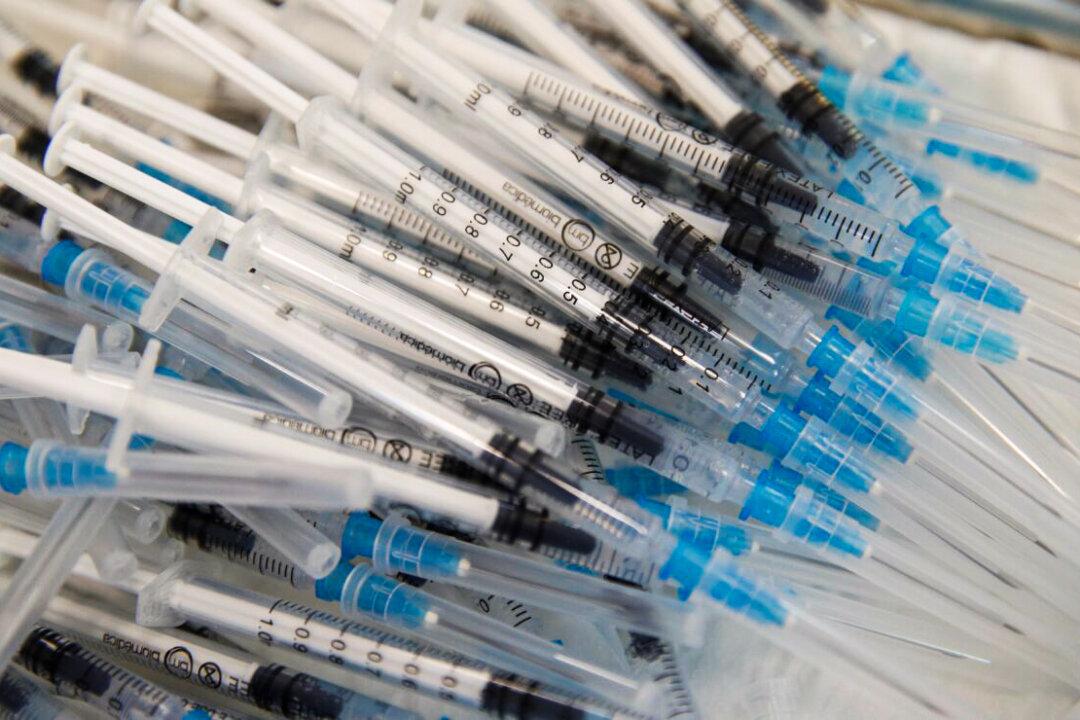The World Health Organisation (WHO) on Tuesday warned of a potential global shortage of up to one to two billion syringes needed to administer COVID-19 vaccinations next year.
WHO expert Lisa Hedman told a United Nations (U.N.) briefing that national health authorities should plan in advance to prevent the “hoarding, panic buying” situation that occurred during the onset of the CCP (Chinese Communist Party) virus pandemic last year, when there were global shortages of personal protective equipment (PPE).





